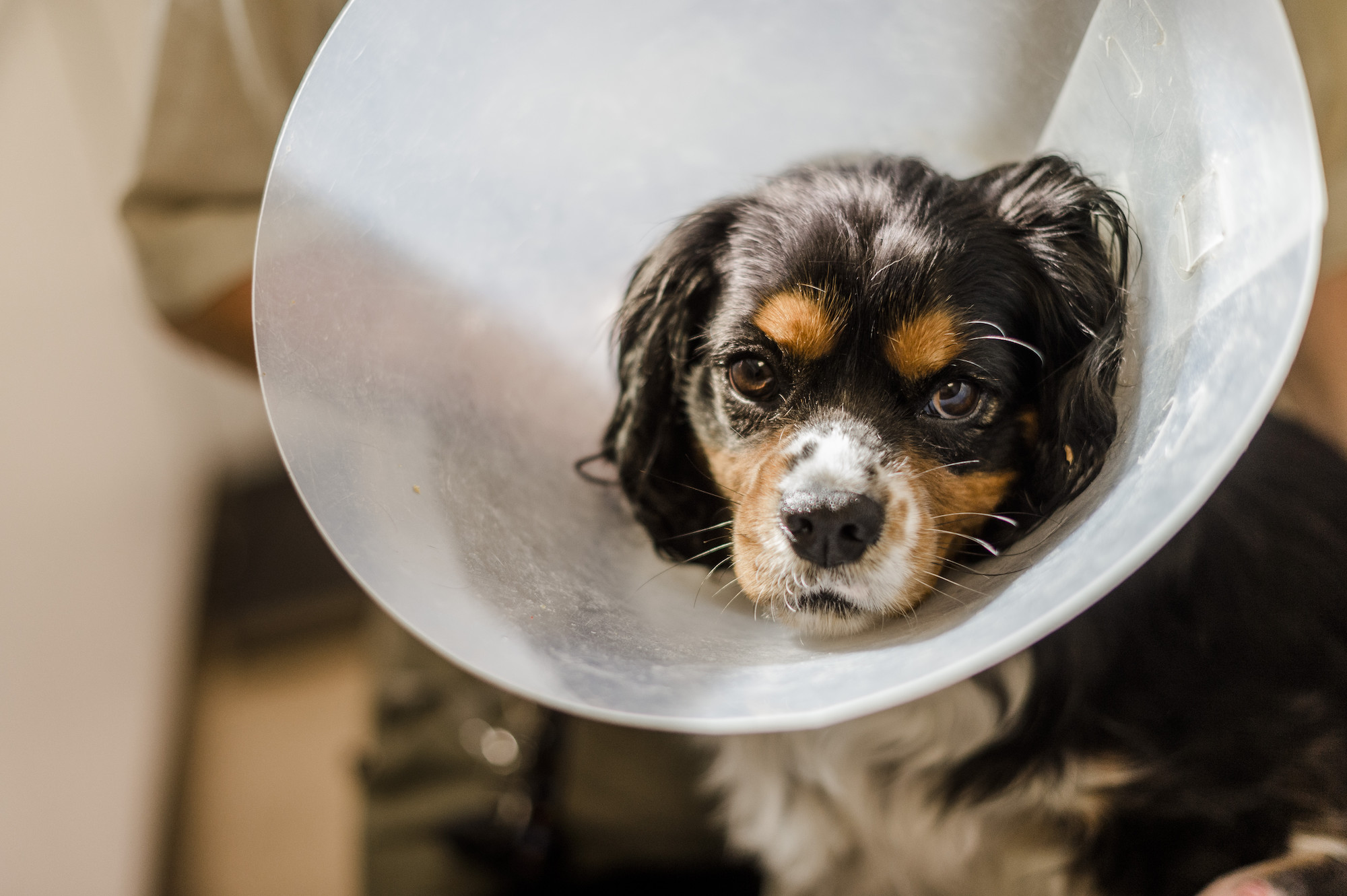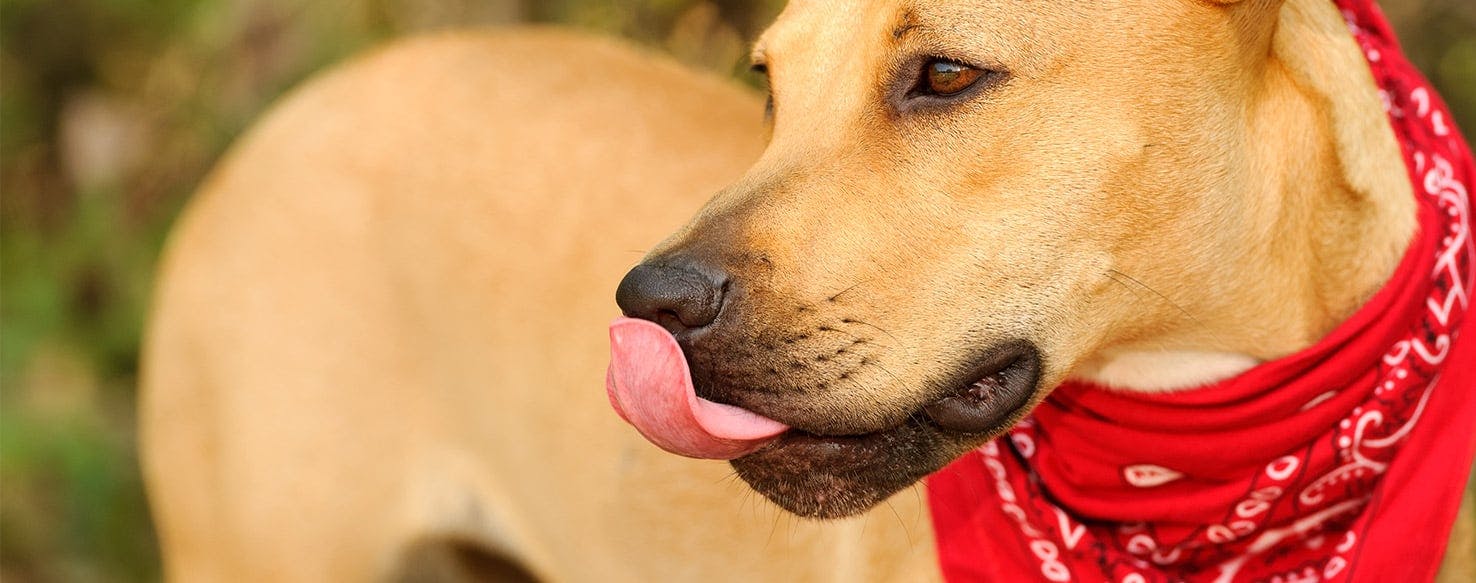
Dogs will naturally lick any wound on their bodies they can reach with their tongues as its just instinct for them to do so. In combination with these techniques engage your dogs attention to keep its mind off the wound.

Excessive licking can lead to irritation paving the.
Is it okay to let my dog lick his wound. Dogs will naturally lick any wound on their bodies they can reach with their tongues as its just instinct for them to do so. Because this is such common behavior many people believe that when a dog licks a wound it will promote healing. There is some evidence that dog saliva has some antibacterial plus the rough surface of a dogs tongue can loosen dirt which may have gotten into the wound.
For those reasons its a good idea not to let your dog lick his own wounds and the wounds of other dogs and people especially when it comes to children. Even if nature is wise and you believe a dog licking himself is an instinct for him to heal himself then that means you can also say that he does it because its the only tool available for him to alleviate his discomfort or pain. Licking might offer some protection against certain bacteria but there are serious drawbacks to letting your dog lick wounds.
Excessive licking canlead to irritation paving the way for hot spots infections and potential self-mutilation. Licking and chewing can also slow healing by reopening wounds. Licking might offer some protection against certain bacteria but there are serious drawbacks to letting your dog lick wounds.
Excessive licking can lead to irritation paving the. Is it a good idea to lick your wounds. Evidence Against the Health Claim Despite the antibacterial agents found in saliva many scientists caution against wound licking arguing that such practice is neither safe nor health-promoting.
Can dogs smell period. You might not have known it before but lots of animals are able to detect when your hormones are changing or balancing out. Often dogs will lick their owners wounds just as they will lick their own.
Licking their own wounds not only helps them heal but makes them feel better. They lick your wounds to help you for the same reasons. That being said many people will purposely let a dog lick their wounds.
While people have been doing this for years and it IS true that a dogs saliva has some antibacterial properties you still shouldnt allow a dog to lick your wounds. But when dogs and cats are truly injured allowing them to lick their wounds can do more harm than good. Like most animal activities wound licking has its roots in behavior that would be beneficial under different circumstances.
When a wild animal licks its wounds it is making the best of a bad situation. With no access to veterinary care the individual uses its tongue to remove dirt and debris from the area. Saliva can also have a negative effect on the growth of bacteria so licking.
If your dog has an open wound whether from surgery or a recent accident it will want to lick the wound by instinct. Unfortunately licking can reopen the wound and lead to infection. A cone or collar is the traditional way to keep a dog from licking a wound.
You can also try covering the wound with a sleeve or strong bandage. In combination with these techniques engage your dogs attention to keep its mind off the wound. Typically sutures are only removed when the site is completely healed.
As long as there is no open wound present there should not be any issue with the area since the. The Elizabethan collar is usually more affordable and more difficult for sneaky dogs to get around. The inflatable collar which looks like an inner tube around your dogs neck is more comfortable except when the dog wants to sleep on his side.
Some dogs are able to maneuver around inflatable collars in order to lick their incisions. Dogs will naturally lick any wound on their bodies they can reach with their tongues as its just instinct for them to do so. Because this is such common behavior many people believe that when a dog licks a wound it will promote healing.
There is some evidence that dog saliva has some antibacterial plus the rough surface of a dogs tongue can loosen dirt which may have gotten into the. Dogs will naturally lick any wound on their bodies they can reach with their tongues as its just instinct for them to do so. Because this is such common behavior many people believe that when a dog licks a wound it will promote healing.
There is some evidence that dog saliva has some antibacterial plus the rough surface of a dogs tongue can loosen dirt which may have gotten into the. Should I Let My Dog Lick His Wound. Licking might offer some protection against certain bacteria but there are serious drawbacks to letting your dog lick wounds.
Excessive licking can lead to irritation paving the way for hot spots infections and potential self-mutilation. Licking and chewing can also slow healing by reopening wounds. Its true that some amount of normal licking can be therapeutic.
In fact theres some evidence that cross-species licking is related to lower levels of infection than same-species licking presumably due to the lower levels of species-specific bacteria. But excessive licking and biting at a wound is NOT a good thing. And surgical incisions are not the appropriate indication for such.
Research suggests that dogs lick their wounds to block the pain and to clean out any dirt or debris left. The behavior can be traced back to the time before dogs were domesticated which is a good thing since they are feral dogs. But unlike pets of today where they have enough time to tend to their wounds wild dogs of before are busy staying alive.
It means that if your dog keeps on licking. Unfortunately letting your dog lick his wounds can be detrimental to his health. This is especially true if your dog had surgery or stitches.
The goal of stitches is to keep a wound closed long enough for it to heal properly. Overzealous licking can quickly turn into chewing and biting. While wound licking is often completely condemned by vets and at the same time almost ritualized by many natural healers there is no simple answer to the question Is wound licking in dogs good or bad Why Dogs Lick Their Wounds.
It is not only do dogs have a natural instinct to immediately lick any wound inflicted on them. Humans too have a reflex to lick or suck on any cuts they suffer. Do not let your dog clean your injuries.
Although your dog means well when it tries to lick your wounds canine saliva can cause infections in humans. As dog bites carry risk of infection so does licking. It is rare for dog saliva to cause serious injury but it has in more than one case.
Unfortunately although dog saliva does have some healing properties the risks carried by allowing dogs to lick wounds are simply too high to warrant licking as a healing tool. When it comes to dogs licking their own wounds a heavy amount of licking is likely to break down stitches and suture and re-open any closed wounds leaving them vulnerable to infection and the accumulation of dirt and debris.